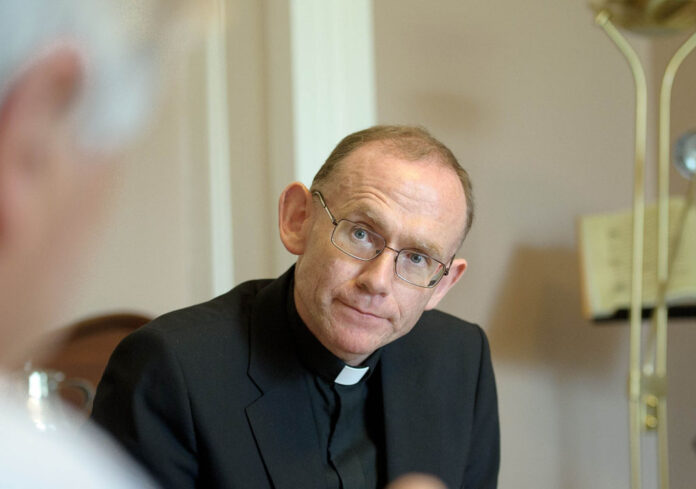ARISING from the announcement of diocesan changes by the Bishop of Killaloe, the diocese has confirmed that the Church is not about closing the doors of churches but that a conversation needs to be had about keeping them open.
After the bishop’s appointments this week, Rev Ger Nash, diocesan secretary said, “We are not closing churches. Down the line, who knows. Big questions have to be asked and will be asked about how we keep our churches open. Every community wants to keep their churches open but it’s a challenge”.
The announcement has detailed the clustering of Quin and Tulla parishes with Ennis for the time being. The changes arise from the appointment of Fr Ignatius McCormack as principal in St Flannan’s College and the retirement of Fr Martin O’Brien in Tulla.
Rev Nash outlined that the population has “become hugely skewed” within the diocese.
While the diocese caters to all parishes, the clustering is deemed necessary due to depopulation within certain parishes.
“At one time we had 58 parishes all the way from Loop Head up to Kinnitty. With the exception of a number of small towns, the rest of the diocese would have been evenly spread and priests would have been evenly spread throughout but now, over one-third of the people in the diocese live in the Ennis-Shannon corridor,” he outlined.
He said “huge areas of the diocese have been massively depopulated”, particularly in rural communities.
“There isn’t anything like the past population in places like West Clare, North-East Clare and in the Slieve Bloom areas, they have been hugely depopulated.
“There’s a huge drift towards the centre and more than a third of the diocese population live in Ennis, Quin, Newmarket, Shannon areas,” he said.
While churches are remaining open, he said there are parochial houses that are no longer occupied by priests.
However, the Church have held onto these and allowed them to be used for other community purposes.
“We have parish houses that are vacant but most of them are being used for community activities and Fás schemes,” Rev Nash continued.
In addition to parishes being clustered and priests taking on administrative duties of other communities, the clergy receives assistance from five priests from other dioceses or religious congregations.
These include priests who may have spent time in the missions with other orders but are not assigned to the diocese, who come to the area and help out at various stages of the year.
The diocese also benefits from the ministry of the clergy based at the Franciscan Friary in Ennis and the Cistercian Monastery at Mount St Joseph’s, Roscrea.
By Carol Byrne
A native of Ennis, Colin McGann has been editor of The Clare Champion since August 2020. Former editor of The Clare People, he is a journalism and communications graduate of Dublin Institute of Technology.


